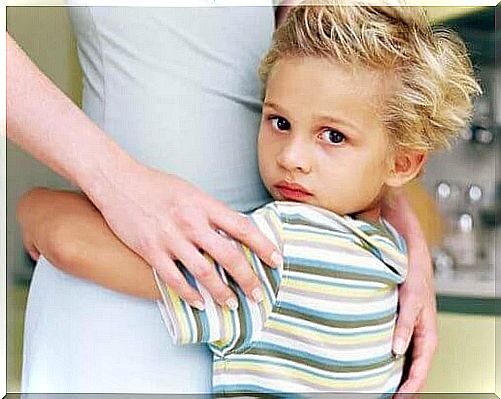3 Common Mistakes In Raising Children

Raising children is not easy, because they are not born with manuals. Many parents feel quite taken aback when it comes to raising children. They often don’t know how to punish or teach their children when they are out of control.
In recent decades we have seen a very big change in families, and also in the relationship between parents and children. This change has led to some very important developments, such as greater recognition of children’s rights.
However, there is also a lot of controversy about how parents should actually punish and educate their children. In general, we have moved from an authoritarian model to a more egalitarian one, characterized by more ambiguous and open ideas about how to raise a child.
There are many parents who complain that there are no boundaries and admit that they just don’t know how to control their children. As a parent, it is not easy to know how to punish and control children in a society that demands more and more freedom all the time. Yet society does not know how to use that freedom.
Raising children is not easy
Raising children goes beyond meeting their basic needs. Also, raising children involves teaching them things, and raising them in an environment of affection, support and respect. This environment should promote the development of secure relationships. It should also facilitate the development of standards and discipline.

Parents must also maintain a balance between freedom and control, adapted to the age of their children. The ultimate goal is for their children to learn to take care of themselves when their brains have fully developed.
Not all parents know how to act and how to solve the various problems that arise during the upbringing of the children. There are many misconceptions about raising children. Some of these misconceptions are:
- “It’s better that I’m friends with my kids.”
- “Early discipline is best.”
- “Discipline is the same as punishment.”
- “The parents are responsible for how the child is.”
Three common mistakes to avoid when raising children
Inconsistency
Inconsistency is a lack of coherence in the different strategies used in controlling, guiding and punishing children.
Inconsistent parents change the rules in unpredictable ways based on various internal or external factors (for example, the presence or absence of the other parent).
In these cases, the guidelines are determined more by the mood of both parents than by the behavior of their children. The problem is that there is no systematic plan to correct inappropriate behavior. This inconsistency can manifest itself in the following ways:
- Rules and discipline are used arbitrarily at different times. This means that parents make unpredictable changes in their expectations and also in the consequences of bad behavior or breaking the rules.
- Disproportionate responses to the child’s positive or negative behavior (for example, punishing appropriate behavior and rewarding inappropriate behavior).
- They give in to the child’s demands, which basically amounts to rewarding the child for unacceptable behavior.
- There is an inconsistency between the two parents. The father and mother act at odds when it comes to the basic rules of disciplinary action and how they punish their children when they break these rules.

Excessive tolerance
Excessive tolerance and letting kids get away with anything can also be problematic. Children need structure in their environment. They need rules of conduct, discipline and supervision.
Excessive indulgence or tolerance can create feelings of confusion and anxiety in children. This can lead to serious problems in setting boundaries in the long run. This indulgence can also arise from ignorance and lack of involvement on the part of the parents.
Parents sometimes don’t know anything about what their kids are actually doing, who their friends are or how things are going at school. In addition, they may not know what their hobbies are or what they like or dislike.
Lack of flexibility
Rigidity, or lack of flexibility, means using a very limited range of teaching strategies. These strategies are applied indiscriminately to all types of inappropriate behavior.
Excessively rigid and inflexible parents are unable to account for the various factors that contribute to their children’s behavior. In addition, they are unable to adjust their way of dealing with bad behavior and the severity of the punishments.

Overprotection can also be a form of rigidity. For parents, overprotection can be a way to manage their own anxiety when they don’t know what to do. For children, it can hinder the development of appropriate coping strategies. It can also lead to insecurity and lack of self-confidence.
It is good to give children the opportunity to do things for themselves. There is no need to guide and monitor them in every situation. Children only need supervision if they are not old enough to do certain things on their own.
We need to let children solve things on their own and even make mistakes. They need to understand the consequences of their actions in order to grow and learn.
From a biological standpoint, it can seem like a simple task to be a parent. However, being a parent from a psychological point of view can be a real challenge. If we avoid these three very common mistakes, we’re a little closer to raising confident, well-prepared children.









